Trektember: What’s Past is Prologue | Star Trek: Discovery
Then war broke out in heaven. Michael and his angels fought against the dragon, and the dragon and his angels fought back. But he was not strong enough, and they lost their place in heaven. The great dragon was hurled down—that ancient serpent called the devil, or Satan, who leads the whole world astray.
—Revelation 12:7-9a
Heh, ‘Michael’. That’s a bit on the nose, isn’t it.
There is an element of ‘There but for the grace of God go I’ to any mirror universe story, where the good guys and bad guys have swapped places. “Wow, she’s pretty much still like me, yet…she’s so rotten!” But that’s been done and done. It’s the auto-discussion, so I’m doing something else here.
First, to catch up:
It turns out Captain Lorca has always been, basically, Mirror Spock: operating in our universe to achieve his nefarious ends. And in this Bizarro World, Captain Philippa Georgiou is God-Emperor of the Galaxy, given an introduction worthy of a Mad Max toady: “Greetings from The Humungus! The Lord Humungus! The Warrior of the Wasteland! The Ayatollah of Rock and Rolla!” It’s about that credibly grand. So this is a ‘we’ve fallen into the hornets’ nest and need to get back to our time’ story. Tra la-lahh.
Maybe I’m spilling my derision a little too broadly. I will say that it is genuinely nice to see some real cleverness in a scene that far suspasses the standard ways we usually see gunfights: shots of people firing, shots of peole ducking, shots of people getting hit, shots of people hopping from one cover to another – mix as needed. In this episode, Emperor Phil’ quite cleverly uses her knowledge of the ship when she fights Lorca. Also, Michael slip-and-slides into a crawlspace, in a really cool moment.
Still, what do I talk about with such a silly concluding episode to such a silly plotline?
So, our good guy, Captain Lorca, has always been a bad guy.
…such men are false apostles, deceitful workers, disguising themselves as apostles of Christ. And no wonder, for even Satan disguises himself as an angel of light. Therefore it is not surprising if his servants also disguise themselves as servants of righteousness; whose end shall be according to their deeds
—2 Corinthians 11:12-15
In this story, the bad guy’s big setup will lead to a universal defeat, and he is thwarted not only despite, but because of, his involvement and efforts. This is a lot like the activities of a certain angel of light we too rarely discuss in our circles:
…during supper, the devil having already put into the heart of Judas Iscariot, the son of Simon, to betray Him […] and after the morsel, Satan then entered into him. Jesus therefore said to him, “What you do, do quickly”
—John 13:2, 27
“Nothing that’s happened to me was an accident.”
That’s Lorca. He’s big on Destiny in this episode, possibly saying it more times per minute than Emperor Palpatine did in Return of the Jedi. It helps him to be a good stand in for The Evil One. He really embodies the attitude, “Better to reign in Hell than serve in Heaven,” (though that’s Milton, not scripture) and his universe is a fair fellow traveller with Hell. His view of his opponents matches The Enemy’s derision of Christ’s people too: “If I thought for a second that any of you were capable of relinquishing this cult-like devotion to the Federation, I’d enlist your skills today.”
“Submit yourselves, then, to God. Resist the devil, and he will flee from you.”
—James 4:7
He is also the usurper of the throne.
How you have fallen from heaven, O star of the morning, son of the dawn! You have been cut down to the earth, you who have weakened the nations! “But you said in your heart, ‘I will ascend to heaven; I will raise my throne above the stars of God, and I will sit on the mount of assembly in the recesses of the north. I will ascend above the heights of the clouds; I will make myself like the Most High.’ Nevertheless you will be thrust down to Sheol, to the recesses of the pit.
—Isaiah 14:12-15
… the rebellion occurs and the man of lawlessness is revealed, the man doomed to destruction. He will oppose and will exalt himself over everything that is called God or is worshiped, so that he sets himself up in God’s temple, proclaiming himself to be God.
—2 Thessalonians 2:3-4
Henceforth our connections get a bit more slender. If Lorca represents the enemy for our metaphorical purposes, then Philippa, if by position alone, stands in for The Father: “Lorca does not control this ship. I do!”
Philippa: “No. I’m destined to kill you.”
Lorca: “That would certainly be an impressive trick.”
…the devil took him to a very high mountain and showed him all the kingdoms of the world and their splendor. “All this I will give you,” he said, “if you will bow down and worship me.
—Matthew 4:8-9
When Michael reaches Lorca, he tells her, “Every opinion is not equal no matter how much they want it to be.” He’s right about that. Most lies are laced with truth. He goes on, “The strong and the capable will always rise. Like you. And me.” He tempts her to join him. She declines.
She then finds Philippa, because she knows her well enough to know where she would be. Michael, very loosely, represents The Son; again, only via her relationship with Phillipa and Lorca. She offers to solve the problem of Lorca directly. Asked how she will accomplish this, Michael says, “… by giving Lorca exactly what he wants,” which is to execute the emperor.
The Enemy wanted to kill God. But –
The Son of God appeared for this purpose, that He might destroy the works of the devil…
—1 John 3:8
Michael offers to substitute herself for her people: “In exchange for my crew, I offer you me,” she tells Lorca. When Saru is told that she has volunteered to stay right in the target zone where he must take a shot, he checks with her.
…Jesus Christ began to show His disciples that He must go to Jerusalem, and suffer many things from the elders and chief priests and scribes, and be killed, and be raised up on the third day. And Peter took Him aside and began to rebuke Him, saying, “God forbid it, Lord! This shall never happen to You.” But He turned and said to Peter, “Get behind Me, Satan! You are a stumbling block to Me; for you are not setting you mind of God’s interests, but man’s”
– Matthew 16:21-23
Here the metaphor gets even more threadbare, though still applicable. Lorca makes his play for the throne, and in the throne room, Philippa’s territory, she and Michael strike back. It’s their realm—they take him, and Lorca falls into the very deathtrap with which he had threatened another.
“…I saw an angel coming down out of heaven, having the key to the Abyss and holding in his hand a great chain. He seized the dragon, that ancient serpent, who is the devil, or Satan, and bound him for a thousand years. He threw him into the Abyss, and locked and sealed it over him…”
—Revelation 20:1-3a
Badda-bing, badda-boom, connections, connections, playfully smacking us on both cheeks. Even in this goofy space adventure, they ran smack into The Gospel at every turn. That’s it!
Except to note that we have another parallel with a major event of episodes 1 & 2. This time Saru takes command from his commander, Captain Lorca, all on his own; but it is both the right thing to do and the right time to do it. His people are convinced. They are fully with him.
• • •
Trektember is an annual series about Star Trek; this year, we’re examining the first seasons of Star Trek: Discovery and The Orville. For more information on this series, click here; or, to read every article from the beginning, click here!


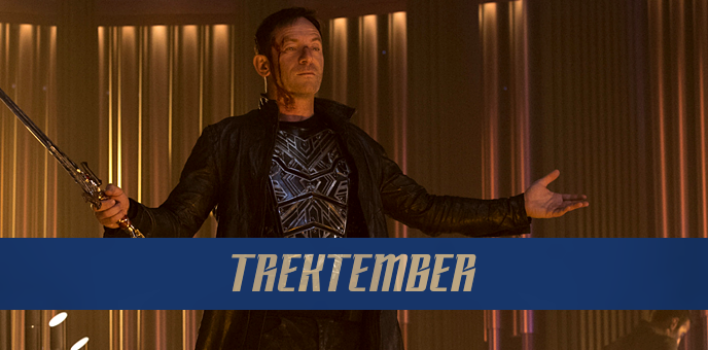
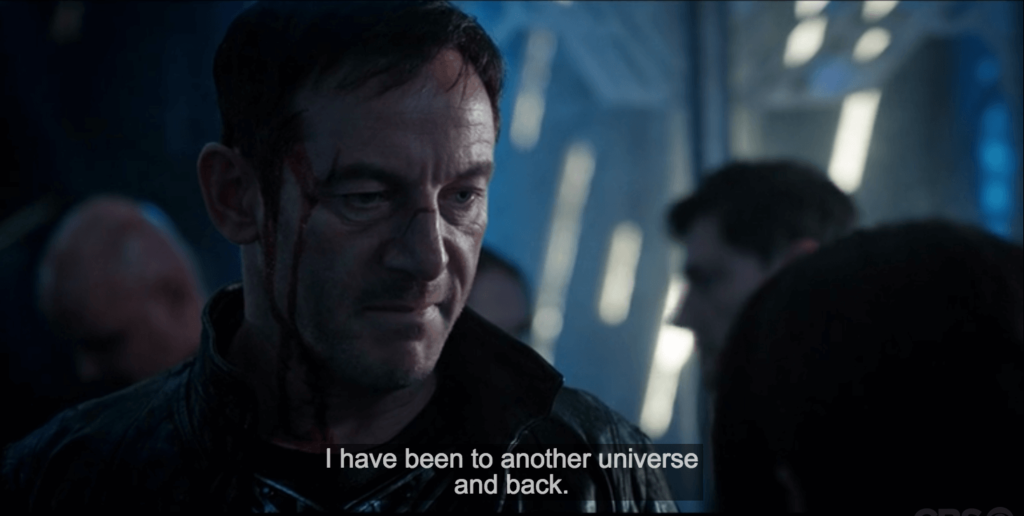
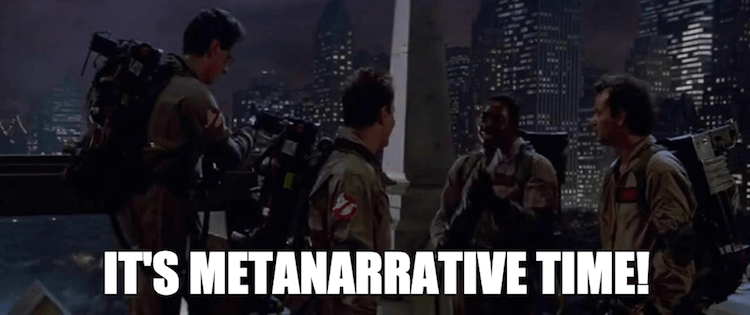
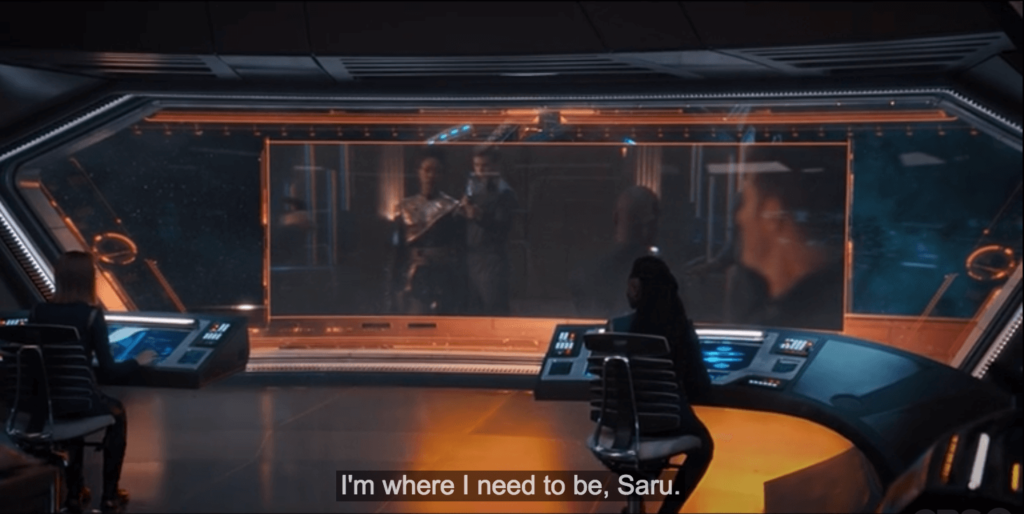
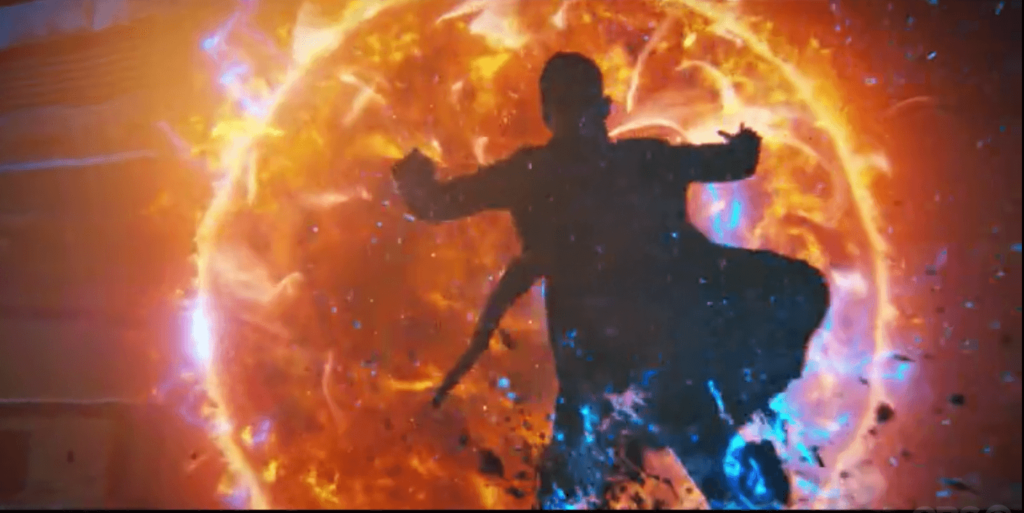

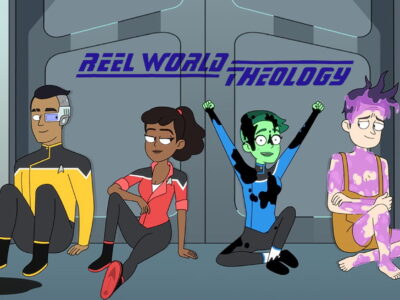
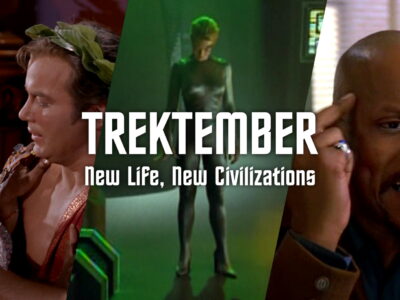


Pingback: Trektember: Season 3 Episode List | Reel World Theology